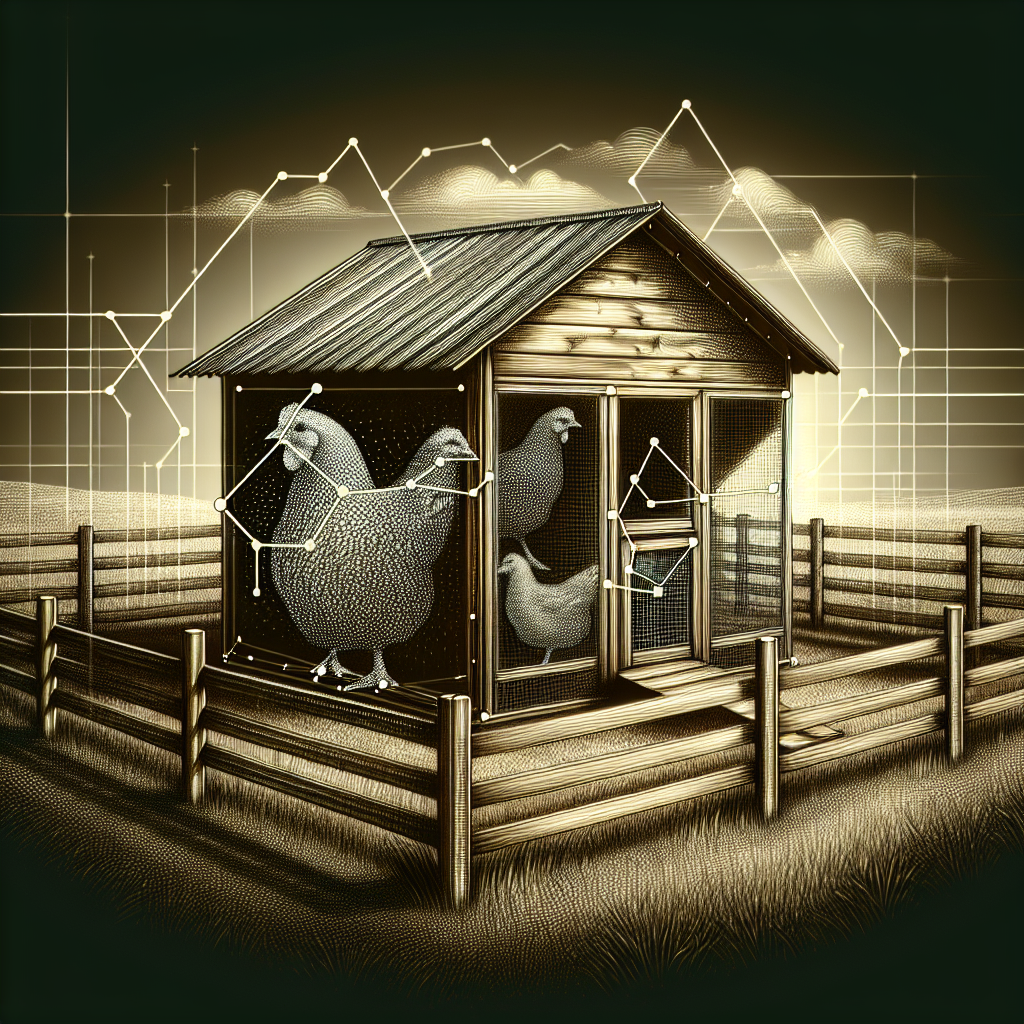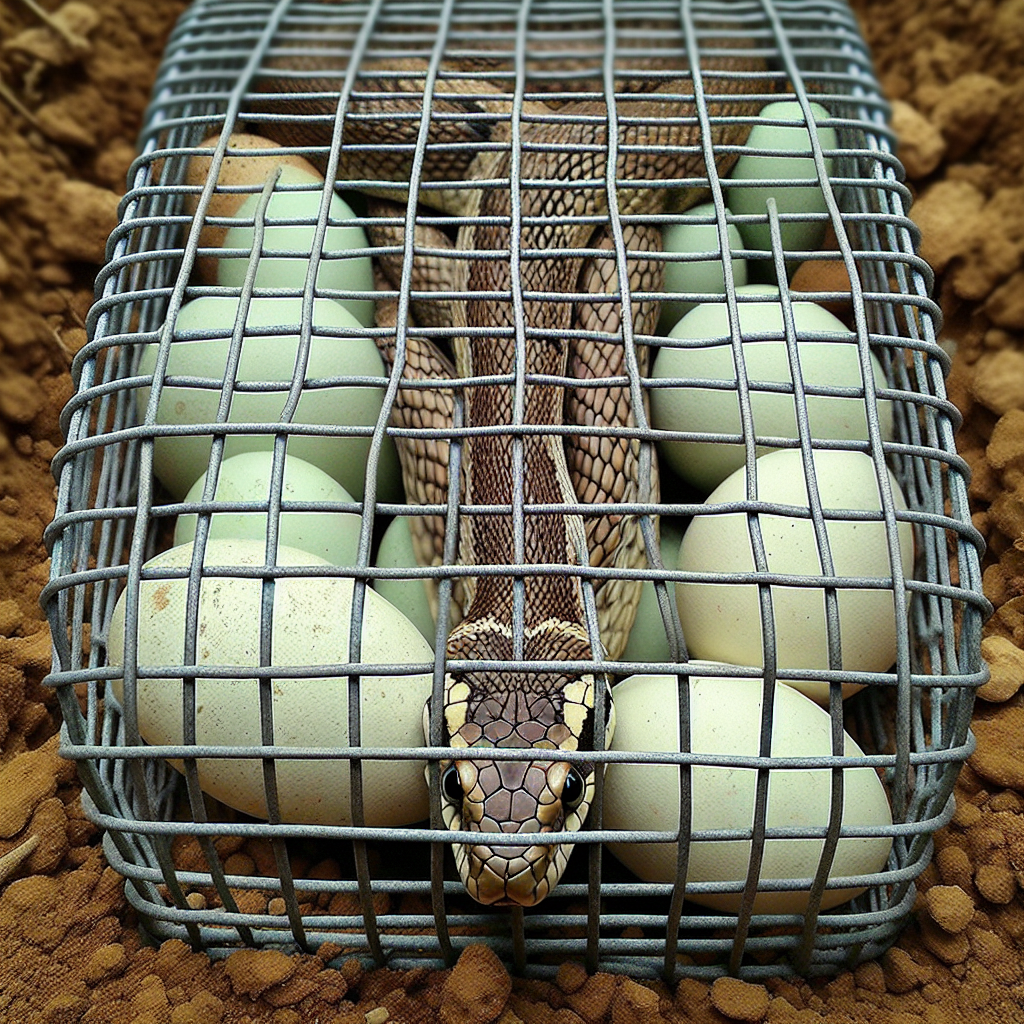Imagine a peaceful morning on your farm, with the sun shining, birds chirping, and your flock of chickens clucking contentedly. But lurking in the surrounding woods, there may be potential predators just waiting for the opportunity to strike. That’s why regular coop and perimeter checks are essential in detecting predators early and ensuring the safety of your beloved birds. By keeping a watchful eye on your coop and maintaining a strong perimeter, you can identify any signs of danger, take necessary precautions, and protect your flock from potential harm. So, let’s explore how these simple but crucial checks can make all the difference in safeguarding your feathery friends.
Benefits of Regular Coop and Perimeter Checks
Improved Safety for Livestock
Regular coop and perimeter checks play a crucial role in ensuring the safety of your livestock. By conducting these checks regularly, you can identify any potential threats or vulnerabilities in your farm’s security system. This allows you to take necessary precautions promptly to protect your animals from harm.
Prevention of Potential Damage
Coop and perimeter checks serve as a proactive measure to prevent potential damage to your farm. By inspecting your coops and fences regularly, you can identify any areas that may be compromised or weakened. Taking immediate action to reinforce or repair these structures helps ensure that predators cannot gain easy access to your livestock.
Enhanced Farm Security
One of the primary benefits of regular coop and perimeter checks is an overall improvement in farm security. By being diligent in inspecting and maintaining your farm’s perimeters, you discourage potential predators from attempting to infiltrate and harm your livestock. The increased security measures act as a deterrent, reducing the likelihood of predator attacks.
Early Detection of Predators
Perhaps the most significant benefit of regular coop and perimeter checks is the early detection of predators. By thoroughly examining your farm’s surroundings and implementing effective detection strategies, you can identify signs of predator activity before they can cause significant harm to your livestock. Early detection allows you to implement necessary measures to protect your animals promptly.
Importance of Early Predator Detection
Protection of Livestock
Detecting predators early is of utmost importance in protecting your livestock. By identifying potential threats at the earliest possible stage, you can take immediate action to prevent harm to your animals. This may involve reinforcing fences, installing predator deterrents, or using scare tactics to keep predators at bay. Early detection ensures that your livestock can continue to thrive in a secure and safe environment.
Prevention of Economic Losses
Early predator detection plays a crucial role in preventing economic losses on your farm. Predators, such as foxes, coyotes, or birds of prey, can cause significant damage to your livestock population. In addition to the emotional toll of losing animals, the financial impact can be devastating. By identifying predators early and implementing appropriate measures, you can minimize potential losses and protect your investment.
Methods of Regular Coop and Perimeter Checks
Visual Inspection of Coops and Fences
Regular visual inspections of your coops and fences are a vital component of effective coop and perimeter checks. Walk along the fence lines, thoroughly examining each section for any signs of damage or potential entry points for predators. Inspecting coops ensures they are secure and free from any gaps or weak spots that may make it easier for predators to access your livestock.
Implementing Security Devices
To enhance the effectiveness of your coop and perimeter checks, consider implementing security devices. Motion sensors and alarms can alert you to any unusual activity in and around your farm, providing an additional layer of protection. These devices can help detect predators before they can cause harm and allow you to respond quickly to mitigate any potential threats.
Use of CCTV Cameras
CCTV cameras are an excellent tool for monitoring your farm’s perimeters and identifying potential predators. By strategically placing cameras throughout your property, you can observe any suspicious activity remotely. This not only aids in early predator detection but also provides valuable evidence should a predator attempt to attack your livestock.
Hiring Extra Staff for Patrols
If your farm is large or you have a substantial number of animals, hiring extra staff to conduct regular patrols can significantly improve coop and perimeter checks. Having additional personnel dedicated to monitoring and inspecting your farm’s surroundings ensures a thorough examination and increases the chances of early predator detection.
Effective Strategies for Early Predator Detection
Setting up Motion Sensors
Motion sensors are a highly effective strategy for early predator detection. By placing these sensors strategically around your farm, you can detect any movement or unusual activity during non-check hours. This allows for immediate response, preventing predators from gaining access to your livestock.
Monitoring Livestock Behavior
Livestock behavior can provide essential clues for early predator detection. By closely observing your animals, you can identify signs of distress or agitation that may indicate the presence of predators. Pay attention to changes in feeding habits, vocalizations, or any other abnormal behaviors that may suggest the presence of a predator in the vicinity.
Utilizing Thermal Imaging Technology
Thermal imaging technology is a powerful tool for detecting predators, especially during nighttime. By utilizing these cameras, you can detect the heat signatures of potential predators, even in the dark. This allows for early detection and appropriate action to be taken, protecting your livestock from harm.
Implementing a Coop and Perimeter Check Schedule
Setting Regular Check Timeframes
Establishing a regular check schedule is essential to ensure the effectiveness of coop and perimeter checks. Set specific timeframes for inspections, taking into consideration the unique characteristics of your farm and the predators prevalent in your area. Consistency in the timing of checks helps maintain vigilance and ensures that potential threats are not overlooked.
Rotating Check Duties
To prevent complacency and maintain a fresh perspective, consider implementing a rotation system for coop and perimeter check duties. Assign different individuals or teams to conduct the checks on a regular basis. This approach allows for a variety of perspectives and ensures that no area is consistently overlooked or neglected.
Keeping Detailed Records
Maintaining detailed records of your coop and perimeter checks is essential for monitoring trends and identifying areas of improvement. Keep a log of each inspection, noting any findings, repairs made, or instances of predator activity. These records provide valuable insights into the effectiveness of your efforts and help guide future preventive measures.
Training and Preparedness for Coop and Perimeter Checks
Educating Staff and Farm Owners
Proper training and education are essential for those responsible for coop and perimeter checks. Educate your staff and farm owners about the importance of these checks and the signs to look out for when detecting potential predators. Provide training on handling different predator scenarios, ensuring that everyone is prepared to respond effectively to any situation.
Creating an Emergency Response Plan
In addition to training, develop an emergency response plan specifically tailored to coop and perimeter checks. This plan should outline the steps to be taken in the event of predator detection, including who to contact, how to safely secure livestock, and any necessary actions to mitigate damage. Regularly review and update this plan to ensure its effectiveness and alignment with current farm practices.
Establishing Cooperation with Local Wildlife Authorities
Seeking Professional Advice
Building a cooperative relationship with local wildlife authorities can provide valuable guidance and support in effective predator detection. Seek professional advice on the specific predators prevalent in your area, their behaviors, and the most effective preventive and responsive measures. Local wildlife authorities can offer expert insights and ensure that your coop and perimeter checks align with best practices.
Sharing Information
Open communication and information sharing with local wildlife authorities is key to effectively managing predator detection. Inform them of any predator encounters or unusual activity you observe on your farm, allowing them to have a comprehensive understanding of the local predator population. This exchange of information helps both parties optimize their efforts to protect livestock and maintain a healthy balance between wildlife and farming practices.
Beneficial Farming Practices to Deter Predators
Proper Waste Disposal
Properly disposing of farm waste is an essential practice to deter predators. Remove any food scraps or animal remains promptly, as they can attract predators. Secure waste storage areas to prevent easy access and avoid leaving waste exposed for extended periods.
Securing Feed Storage
Securely storing livestock feed minimizes the risk of attracting predators to your farm. Use sturdy containers or bins with tightly fitting lids to store feed, ensuring that predators cannot access it easily. Inspect storage areas regularly to identify any signs of tampering or potential vulnerabilities.
Securing Poultry Houses
Poultry houses are particularly vulnerable to predator attacks. Ensure all entrances and exits are securely closed and reinforced to prevent predators from gaining access. Regularly inspect the integrity of the structure and make necessary repairs promptly to maintain a predator-resistant environment.
Establishing Wildlife Deterrents
Implementing wildlife deterrents can significantly reduce the risk of predator attacks. Install predator-proof fencing, use motion-activated scare devices or sirens, and consider utilizing livestock guardian animals such as dogs or llamas to deter potential predators. These measures create an additional barrier for predators and greatly improve the chances of early detection.
Addressing Common Challenges in Predator Detection
Identifying Vulnerable Areas
Identifying vulnerable areas on your farm is crucial in addressing potential challenges in predator detection. Conduct thorough assessments of your farm’s perimeters, coops, and livestock housing to identify any weak points or gaps that predators may exploit. Implement necessary measures to reinforce these vulnerable areas, reducing the likelihood of successful predator attacks.
Handling False Alarms
False alarms are an inevitable part of coop and perimeter checks. Birds, small animals, or even extreme weather conditions can trigger motion sensors or other detection devices. To effectively handle false alarms, establish communication procedures and guidelines for responding to these situations. Train staff on how to quickly and accurately assess potential threats and differentiate between genuine predator activity and false alarms.
Dealing with Persistent Predators
Persistent predators can pose an ongoing threat to your livestock. In such cases, additional measures may be necessary to protect your animals effectively. Seek advice from local wildlife authorities or pest control experts to develop targeted strategies to deter or remove these persistent predators. Collaboration with professionals can help mitigate the impact of determined predators on your farm.
Conclusion
Regular coop and perimeter checks are essential for the early detection of predators and the effective protection of your livestock. By implementing strategies such as visual inspections, security devices, and effective detection methods, you can maximize the benefits of these checks. Additionally, establishing cooperative relationships with local wildlife authorities and implementing beneficial farming practices further enhances predator deterrence. With proper training, preparedness, and record-keeping, you can minimize the risks associated with predator attacks and ensure the safety and well-being of your livestock. By prioritizing regular coop and perimeter checks, you can enjoy greater peace of mind and safeguard your farm’s success.




